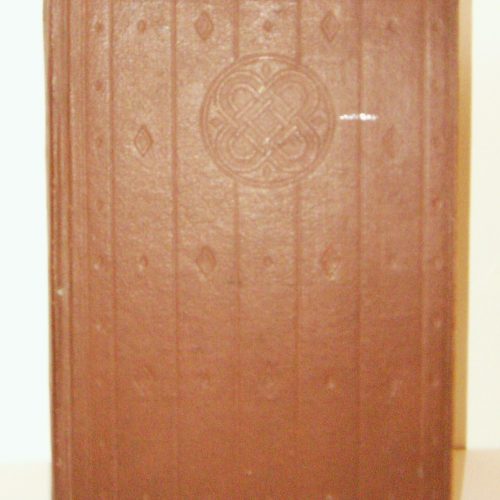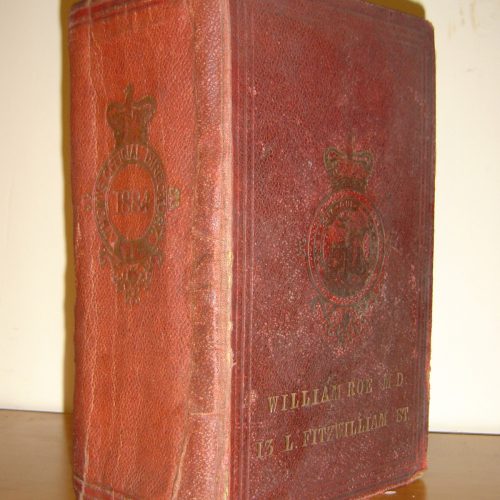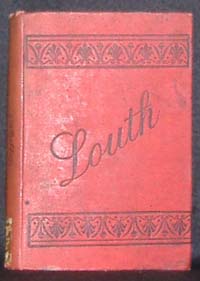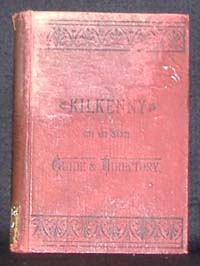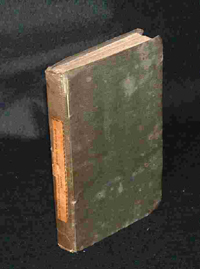Rev. P.A. Canon Sheehan DD, Literary life: Essays and Poems, 1921
What is inside?
First published in Dublin in 1921 and republished here is the Literary Life, Essays & Poems of the Very Reverend Patrick Augustine Sheehan, invariably known as Canon Sheehan of Doneraile. Containing some 267 printed pages, Literary Life is an edited collection of some of Canon Sheehan's most notable essays and in this first edition also a collection of poetry, which is often absent from later editions of this publication, the most recent of which was issued in paperback in 2009. Born on St. Patrick's Day 1852 at Mallow, Co. Cork, to a shopkeeper, both of Sheehan's parents died when he was quite young and he and his siblings were entrusted to the care of priest-relative, Dr. John McCarthy, who would later become Bishop of Cloyne. Initially educated at the Long Room School, Mallow, where one of class mates was William O'Brien, later journalist, parliamentarian and MP, with who Sheehan would co-found the All For Ireland League, and later at St. Colman's College, Fermoy, and St. Patrick's College, Maynooth; it was while studying at Fermoy that Sheehan witnessed first-hand the Fenian Rising of 1867. This had a profound affect on Canon Sheehan, which was amply vented in some of prose works, such as The Graves of Kilmorna. Beginning his priestly ministry in Exeter and while here he acted as chaplain to Dartmoor prison where some prisoners convicted of treason felony after the Fenian Rising were still being held. Returning to Ireland in 1877, Sheehan first took-up the curacy of Mallow, before being transferred to Cobh and was then appointed parish priest of Doneraile in 1895, the ministry of which he retained until his death.
Highly regarded by the the tenantry and Viscount Doneraile alike, with Sheehan's insight and help, the majority of Viscount Doneraile's tenant had purchased their landholdings by 1903 on terms acceptable to both tenant and landlord without acrimony or violence, which was in stark contrast to neighbouring estates, such as the Kingston estate. In 1903, in Response to the Wyndham Land Act and the later actions of John Redmond's Parliamentary Party, Sheehan co-founded with William O'Brien, the All-for-Ireland-League, writing the manifesto for the League, which espoused Catholic-Protestant co-operation and inclusivity in every walk of life, aptly expressed in his 1911 novel, the Intellectuals. A prolific author, towards the end of his life Sheehan had become somewhat of a literary celebrity and between 1903 and his death he met many times and corresponded frequently with the American justice, Oliver Wendell Homes. Amongst many of Sheehan's most enduring literary works are Geoffrey Austin, Student (1895), The Triumph of Failure (1899) - the title adopted for Patrick Pearse's biography - My New Curate (1900), Luke Delmege (1901), Glenanaar (1905), Lisheen (1907), The Blindness of Dr. Gray (1909), The Queen's Fillet (1911), Miriam Lucas (1912) and The Graves of Kilmorna (1915). Through Sheehan's actions and works he preached tolerance and co-existence, themes, which are amply explored in a selection of essays, poems and prose issued after his death in The Literary Life, Essays and Poems of Canon Sheehan of Doneraile.
This title is a DOWNLOAD.
Research Store.
Browse our range of products that can help trace your family ancestry and learn the story of your families history and past.
